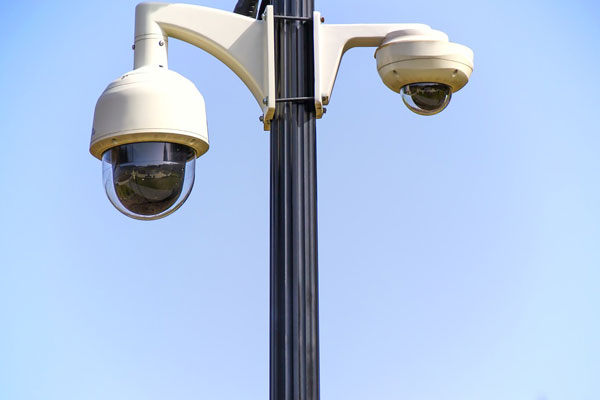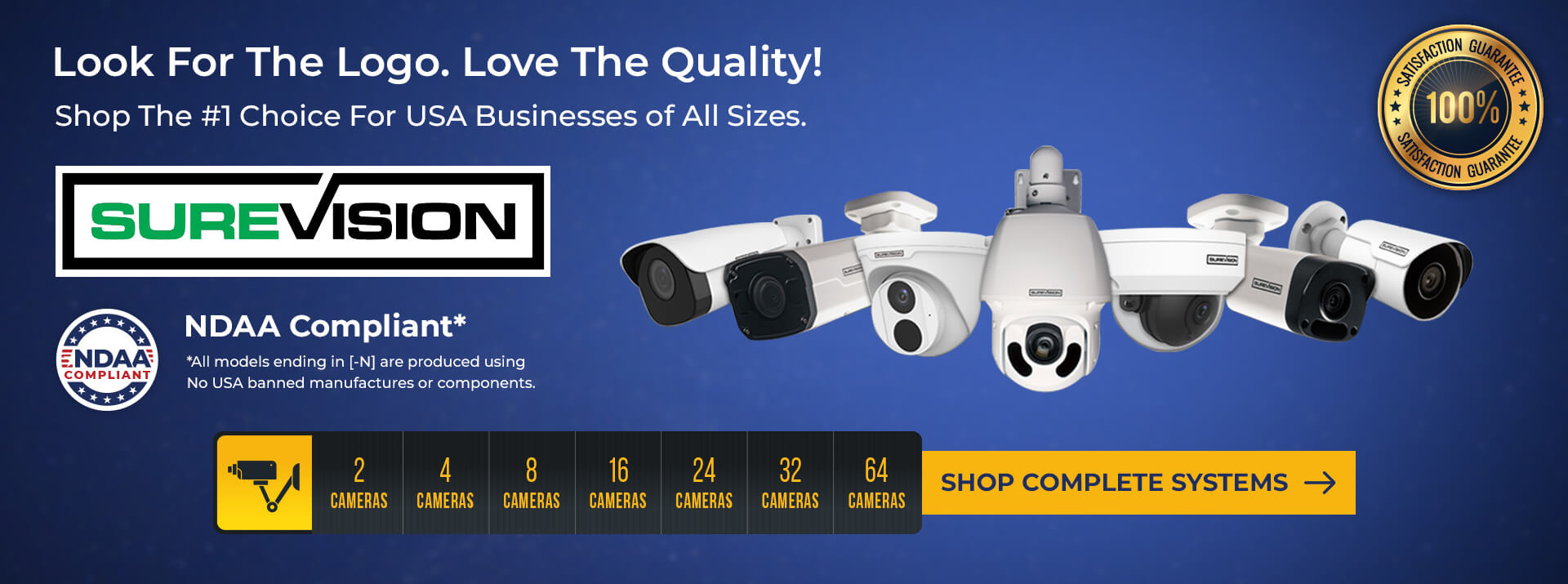Security Cameras with Local Storage
Posted by Gregory DeRouanna on Dec 14, 2018

When shopping for a professional-grade security system, one of the questions you need to ask yourself is how you’ll want to store the recorded surveillance footage. You have two options - local storage and cloud storage. While technological advances in surveillance have seen the uptake of cloud storage solutions, storing recorded video locally is often considered the best option for business security needs.
Locally stored footage is much easier to access, saves you money and is often easier to use when you need it. As far as security camera local storage is concerned, you have two options too - you can either store your video recordings internally inside the security camera of your choice or externally to a hard drive inside a Network Video Recorder (NVR) or a Digital Video Recorder (DVR). Internal storage is great if you don’t want to rely on wiring or internet access.
In this blog, we’re going to discuss how security camera video recorders work in ensuring that you have a simple yet versatile and reliable storage solution for your business or home surveillance needs:
How NVRs and DVRs Work
Both network video recorders and digital video recorders perform the same job of saving and storing recorded surveillance videos, but they’re designed to work uniquely and with different types of security cameras. Both types of recorders come as stand-alone devices. Let’s have a look at each of them:
- DVR recorders - DVR recorders are used in the traditional analog or HD CCTV surveillance systems. They evolved from the older VCR security camera local storage models, but are now the preferred choice among end-users who want to convert analog video files into digital format without necessarily having to replace their entire analog CCTV surveillance infrastructure. These recorders can accommodate both analog and HD megapixel security cameras, while also offering the convenience of remote access.
The security cameras are connected directly to the DVR via a coaxial BNC cable. DVRs systems can only use wired security cameras. Depending on whether you’re using analog cameras or the more advanced HD security cameras with your digital video recorder, the image quality you get may vary. DVRs can support up to 1080p HD. - NVR Recorders - Network video recorders work with IP security cameras. NVRs use the local network to send and receive surveillance data and are a perfect option for remotely monitoring your surveillance system from any internet-enabled device like your smartphone, tablet or PC. Because IP security systems are now considered the future of surveillance technology, NVRs usually come with a wider range of features and are now more widely used for security camera local storage.
NVRs use Power-Over-Ethernet (PoE) technology to connect cameras and are more complex and flexible than DVRs. The IP cameras process the video data then transmit it to the recorder for storage unlike in DVRs. NVRs connect to cameras using a single cable that transmits both video and audio, while also supplying power, eliminating the need for messy wires and splitters. You only need to have your IP cameras on the same network to enjoy remote viewing. These recorders can support up to 1080p and 4K Ultra HD video recording.
How External Video Recorders Can Help You

Learn More with CCTV Security Pros
If you’re looking for commercial-grade video recorders that you can count on for your business or home surveillance needs, look no further but our selection of NVRs and DVRs at CCTV Security Pros. We’re here to help you select the right recorder for your security camera local storage requirements. Call us at 888.653.2288 or send a message online now.




